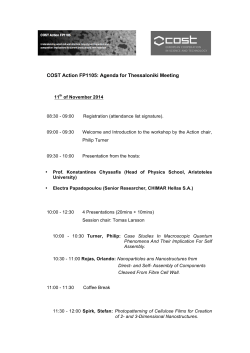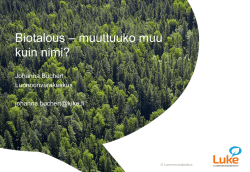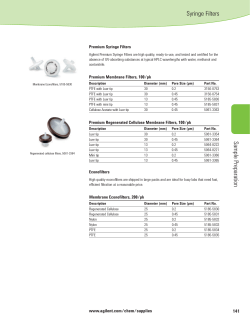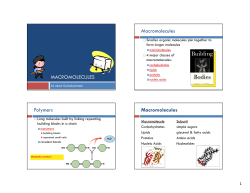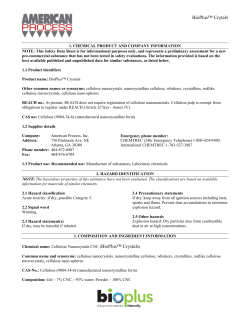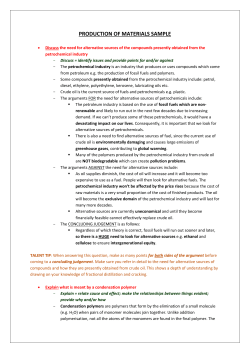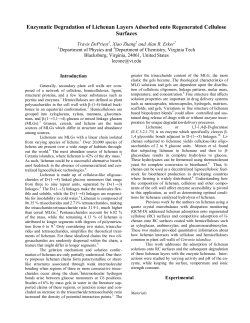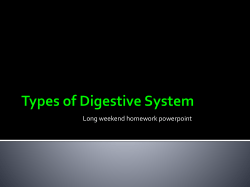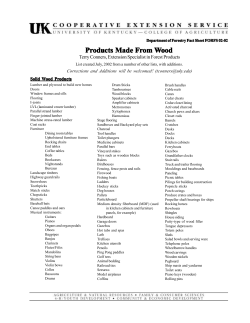
What is nanocellulose ? Prof. Janne
What is nanocellulose ? Prof. Janne Laine Helsinki University of Technology, 14.2.2008 From cellulose (wood) fibres to nanofibrillated cellulose Fibres • Width 30-40 μm • Length 1-3 mm Fibrils • Width 5-30 nm • Length over 1 μm 2 How to make nanofibrillated cellulose from wood pulp ? Nanofibrillated Cellulose Masuko refiner Microfluidizer Homogenisator The production of nanofibrillated cellulose is based on disintegration of cellulose fibres by combining mechanical treatment with chemical (or entzymatic) treatments • • • • 3 low energy consumption good quality (homogenous material) a large variety of functionalities good processability Treatments by tailor-made polymers 4 Stable dispersion Controlled rheology Surface modification of nanocellulose Improved compatability between different materials Formable, light, tough, smooth and other novel properties and structures Excellent paper surface Formable, tough, light composites Ahola et al 2007 (E≈ 6 GPa) Henriksson 2008 Lindström, Winter 1988 Superior paper strength Novel structures Ahola et al 2007 5 Novel Functional materials Ti2 Conducting cellulose materials • other metals • magnetic materials TiO2 layer makes MFC photocatalytic active •1% NFC: ~ 6 x 10-2 S/cm3 •2%NFC: ~ 5 x 10-3 S/cm3 •5%NFC: ~ 8 x 10-4 S/cm3 6 Chemistry of Materials, 2007, revising Silvennoinen et al. Numerous, high sophisticated characterization techniques are needed! Dimensions and network structure AFM TEM, SEM BET Particle size analyzers Dynamic rheology SAXS DMA Chemical and surface chemical properties Charge measurements Chemical composition, XPS Wettability Adsorption properties 7 BACK TO PROGRAMME What is nanocellulose ? Preparation of nanofibril Products It is a natural nanomaterial that provides a large range of possibilities to obtain superior material properties for different end-products 8
© Copyright 2024

